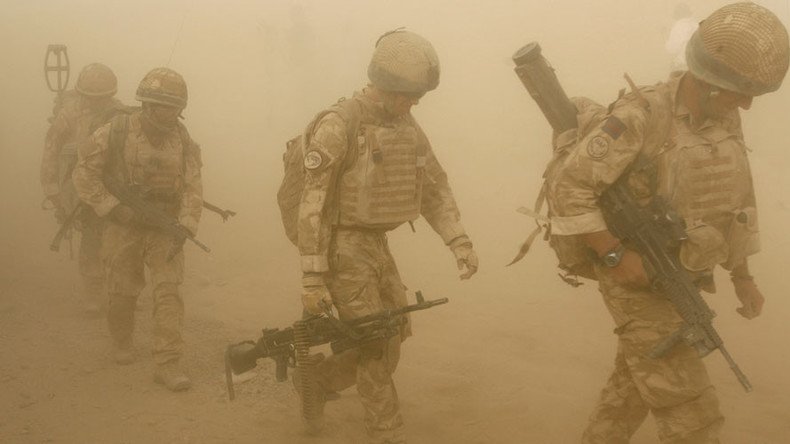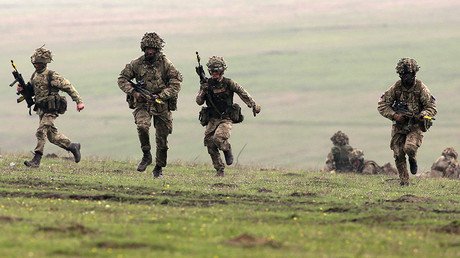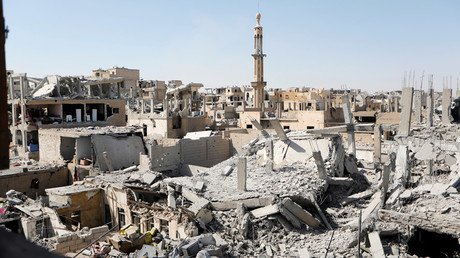Trump calls on May to join Afghan troop surge… but what can cash-strapped Britain contribute?

British troops could once again march into the ‘graveyard of empires’ as US President Donald Trump packs on the pressure for a coalition surge in Afghanistan – despite a yawning black hole in Britain’s defense budget.
Prime Minister Theresa May is under pressure to follow the White House U-turn on ending ‘the good war’ in Central Asia, after Trump reneged on his election pledge to pull the army out.
In a fresh test for the ‘special relationship,’ the Tories will now consider how the British military can respond – despite losing 456 servicemen and women since the war began in October 2001.
Trump announced the US will deploy ground troops to avert a Taliban takeover and “prevent mass terror attacks” on American soil.
However, campaigners believe increased military support will only antagonize the situation.
There are currently 500 British personnel on the ground, and a further 85 promised. But senior sources have dashed US certainty by insisting there would be no more.
Senior Ministry of Defence (MoD) officials are scrambling to see what the UK can offer without damaging relations with Washington – and without actually committing soldiers.
A source told the Sun the UK will “look at what capabilities could be offered.”
The help could come in the form of reconnaissance planes, drones and equipment, but is unlikely to involve troops.
Defence Secretary Sir Michael Fallon said: “We agreed that despite the challenges, we have to stay the course in Afghanistan to help build up its fragile democracy and reduce the terrorist threat to the West.”
UK troops in Afghanistan have been part of a long-running special forces mission to track down senior Taliban and Al-Qaeda remnants.
The UK and the US under David Cameron and Barack Obama pulled troops out before the Taliban had been defeated in 2014, handing over to domestic Afghan security forces.
Troops in crisis
The conflict has already cost the UK hundreds of lives and more than £40 billion (US$50 billion).
Now, as the US seeks further assistance, the army is facing down a huge cash crisis.
Military equipment is setting the forces back billions, as spending on drones, submarines, warships and planes increases. Some experts have suggested troops could be cut to fund the high-tech developments.
The generously-named “funding challenge” means the British Army has to find £20 billion (US$25.8 billion) over a decade, to close the gap between what is in the bank and what is being spent.
The story so far
In 2001, US and UK troops invaded Afghanistan following the 9/11 attacks.
Britain supported the Afghan Northern Alliance against the ruling Taliban, which was accused of harboring Osama Bin-Laden, the mastermind behind the New York attacks.
By 2003, the Taliban had regrouped and deployed insurgency tactics, carrying out suicide bombings and rigging entire towns and roads with improvised explosive devices (IEDs).
Over the course of 14 years, 456 UK troops lost their lives in the conflict – a death rate higher than that of the conflict in Iraq and the Falklands War.
Task Force Helmand was closed in spring 2014 and Camp Bastion was handed over to Afghan security forces the same year.
The 350,000-strong Afghan National Security Forces now have security responsibility for Afghanistan’s 30 million citizens.














